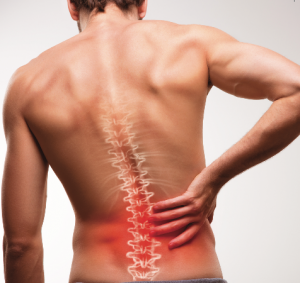Back Pain 101: What to Do and When to Worry
If you have ever experienced lower back pain, you are not alone. Studies indicate that 60 to 90 percent of the population has experienced it at least once in their lives. The good news is that 50 percent of back pain will resolve in one to two weeks, and 90 percent will resolve in six to 12 weeks. Now the question becomes when and when not to seek treatment for your back pain.
Acute or New Onset of Lower Back Pain
You are working in the yard and feel a “pull.” Sound familiar? This may be due to a simple sprain/strain or to problems with structures in the spine. Apply ice during the first 48 to 72 hours. Then follow with heat therapy to reduce muscle spasms, stiffness and injury. Over-the-counter anti-inflammatory medications and pain relievers can also be used.
Activity
People often ask, “How active should I be with back pain?” It’s tempting to lie on the couch all day. However, studies show that bed rest for more than two days actually increases recovery time for back pain. Consult your physician to determine your activity level.
Physical Therapy
Tissue injury can cause muscles in the back and neck to spasm. Physical therapists can provide you with an individualized treatment program with exercises specific for your area of pain and symptoms.
Massage
A massage therapist can relax tense back muscles and increase blood circulation to the back, which accelerates healing. Massages also release endorphins, which are the body’s natural painkillers.
Smoking and Obesity
Back pain is more common in individuals who are smokers and/or overweight. Extra weight strains the muscles while smoking robs the spine of oxygen and nutrients. Your physician can assist you with starting a diet and exercise program in addition to a smoking cessation program.
Back Pain Red Flags
If you have one or more of these symptoms, you may have a serious issue with your back and should seek medical assistance.
- You are younger than 20 or older than 55 and experiencing back pain for the first time
- The pain follows a traumatic or violent injury, such as a car accident
- You experience back pain at night
- Your back pain is constant and getting worse
- Your back pain is in the upper part of the spine
- You presently have cancer or have had it in the past
- You are on corticosteroids
- You use illegal drugs or are infected with HIV
- You generally feel unwell, have back pain and are feverish
- You are experiencing back pain and have had a significant weight loss
- You have back pain and continue to have great difficulty bending forward
- You are experiencing numbness, loss of function in your legs, loss of bowel or bladder function
- You have developed an obvious structural deformity of your spine
- Debilitating back pain that is not reducing after four to six weeks
Summary If you experience any of the “red flag” symptoms, persistent back pain, or just have questions about your back and how to keep it healthy, contact your healthcare provider.
Jacob A. Strong, M.D. received his medical degree from Wake Forest University School of Medicine in Winston-Salem, North Carolina. He completed his residency in Physical Medicine and Rehabilitation at Emory University School of Medicine in Atlanta, and his fellowship in Musculoskeletal and Pain Medicine at UMDNJ/Kessler Institute for Rehabilitation in Newark, New Jersey. Dr. Strong is Board Certified in Physical Medicine and Rehabilitation and is a member of the American Academy of Physical Medicine and Rehabilitation.
Resurgens Spine Center • Non-surgical & Surgical Spine Care • 23 Convenient Atlanta Locations • Resurgens.com





